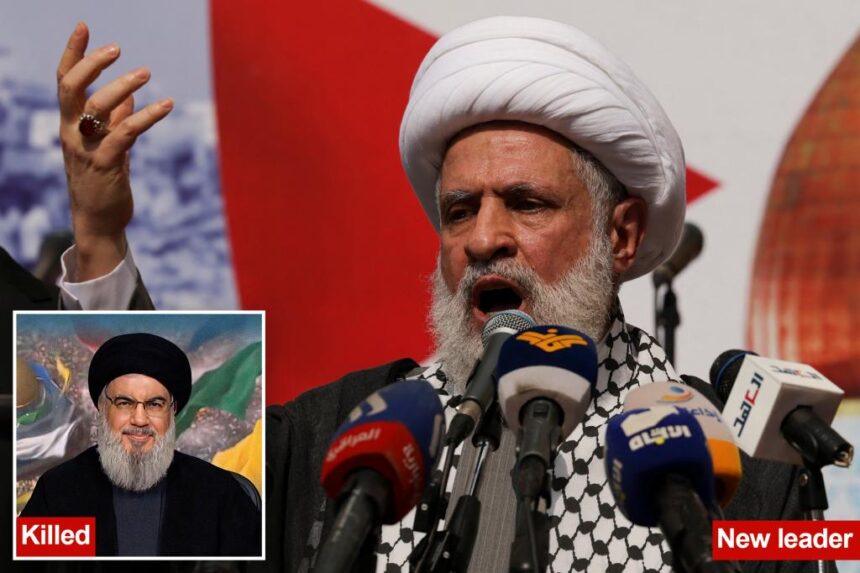Hezbollah’s deputy secretary general Sheikh Naim Qassem has been a prominent figure in the Iran-backed movement for over three decades. Recently elected as the head of the Lebanese armed group, Qassem delivered a defiant message on October 8th, stating that the conflict between Hezbollah and Israel was a test of endurance, with Hezbollah refusing to be the first to back down despite enduring significant losses from Israeli attacks.
In a televised address from an undisclosed location, Qassem emphasized that Hezbollah’s capabilities remained strong despite the challenges they faced. He also expressed support for the ceasefire efforts led by parliament speaker Nabih Berri, a close ally of Hezbollah, signaling a shift in the group’s approach.
The speech came shortly after the reported targeting of senior Hezbollah figure Hashem Safieddine and the assassination of Hezbollah’s secretary general Sayyed Hassan Nasrallah. Safieddine’s death was confirmed by Hezbollah on October 23rd, further intensifying the already heightened tensions in the region.
Qassem, who was appointed as deputy chief in 1991, has been a key spokesperson for Hezbollah over the years. He has conducted interviews with foreign media outlets, providing insights into the group’s strategies and positions during periods of conflict with Israel.
Born in Beirut in 1953, Qassem’s political journey began with the Lebanese Shi’ite Amal Movement before joining Hezbollah in response to the Israeli invasion of Lebanon in 1982. He has played a crucial role in Hezbollah’s political activities, including coordinating parliamentary election campaigns since 1992.
In his address following Nasrallah’s death, Qassem reiterated Hezbollah’s commitment to fighting against Israel in solidarity with Palestinians. Despite acknowledging the challenges ahead, he emphasized that Hezbollah would continue the battle for as long as necessary.
Qassem’s unique perspective and background provide valuable insights into Hezbollah’s history and operations. His recent appointment as the head of the group marks a new chapter in Hezbollah’s leadership, with Qassem poised to steer the organization through turbulent times.
In conclusion, Sheikh Naim Qassem’s leadership of Hezbollah represents a significant development in the group’s trajectory. His experience, resilience, and unwavering commitment to the cause make him a formidable figure in the ongoing conflicts in the Middle East.







